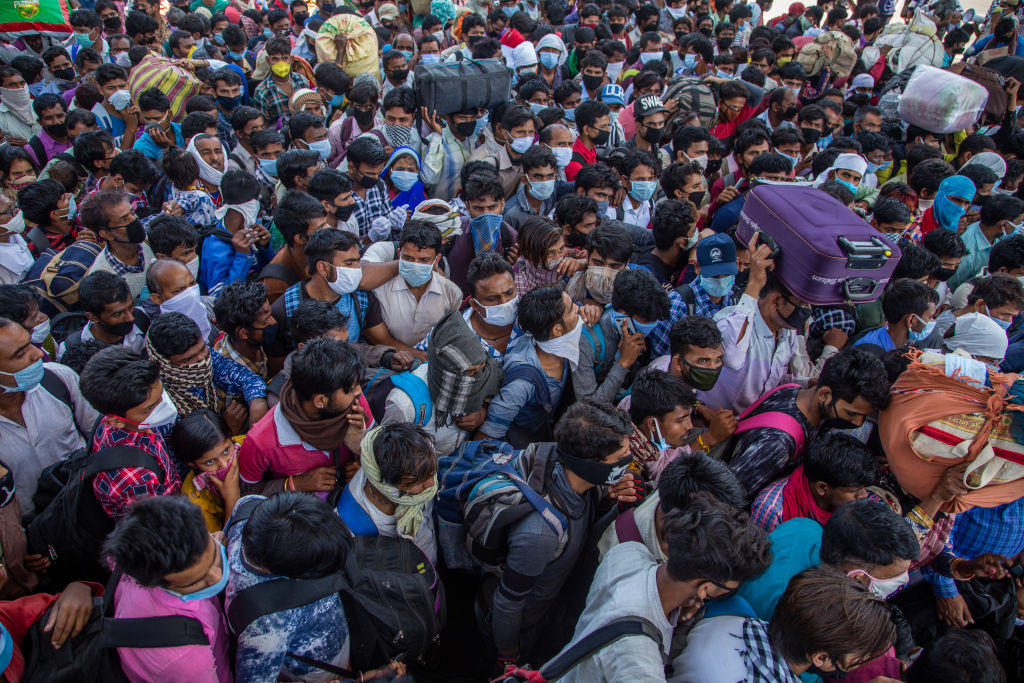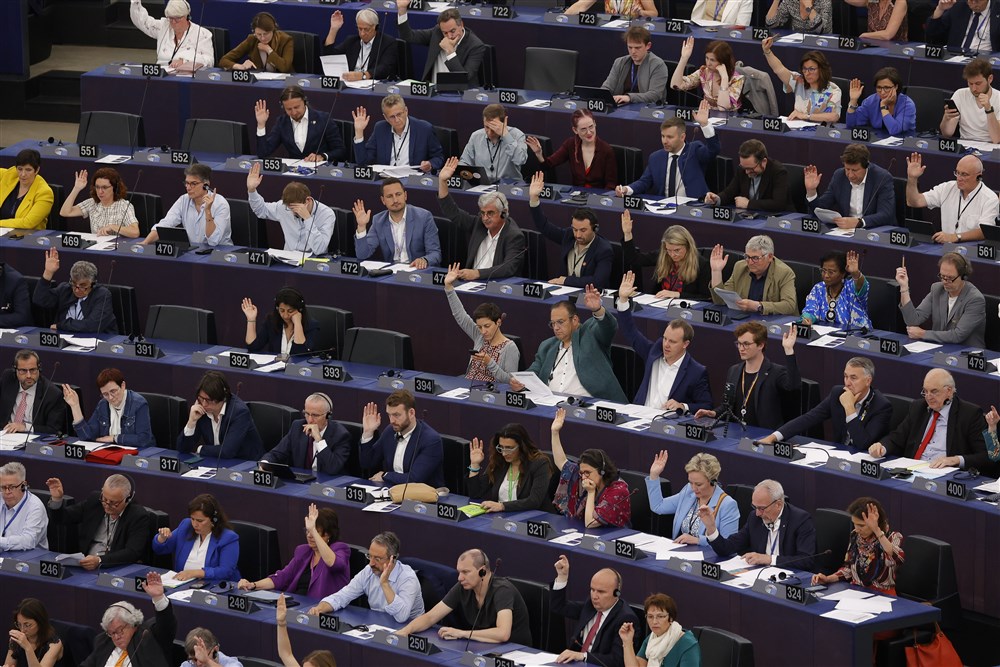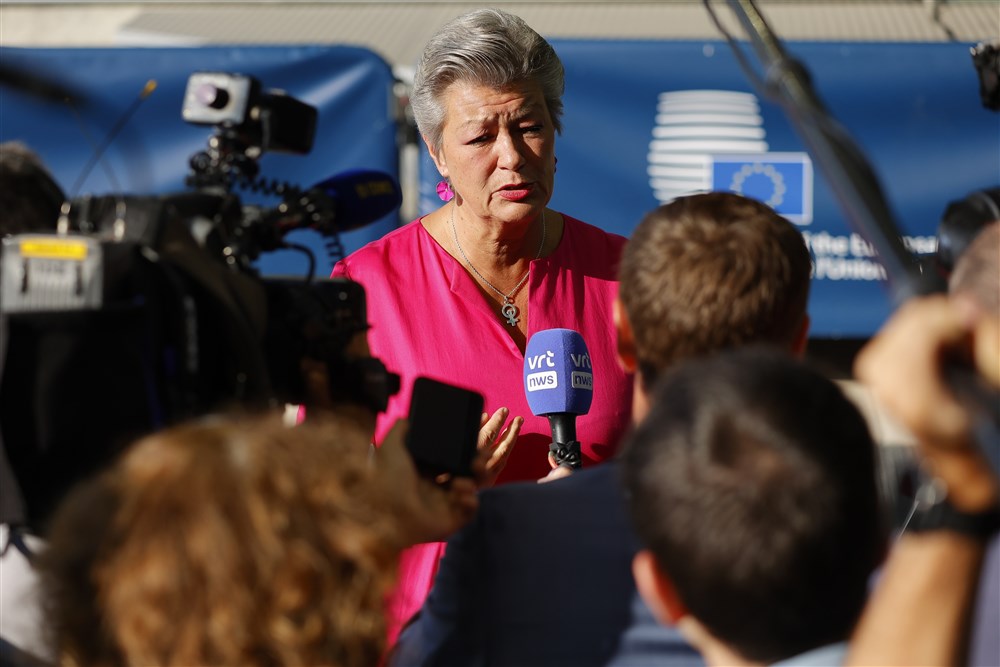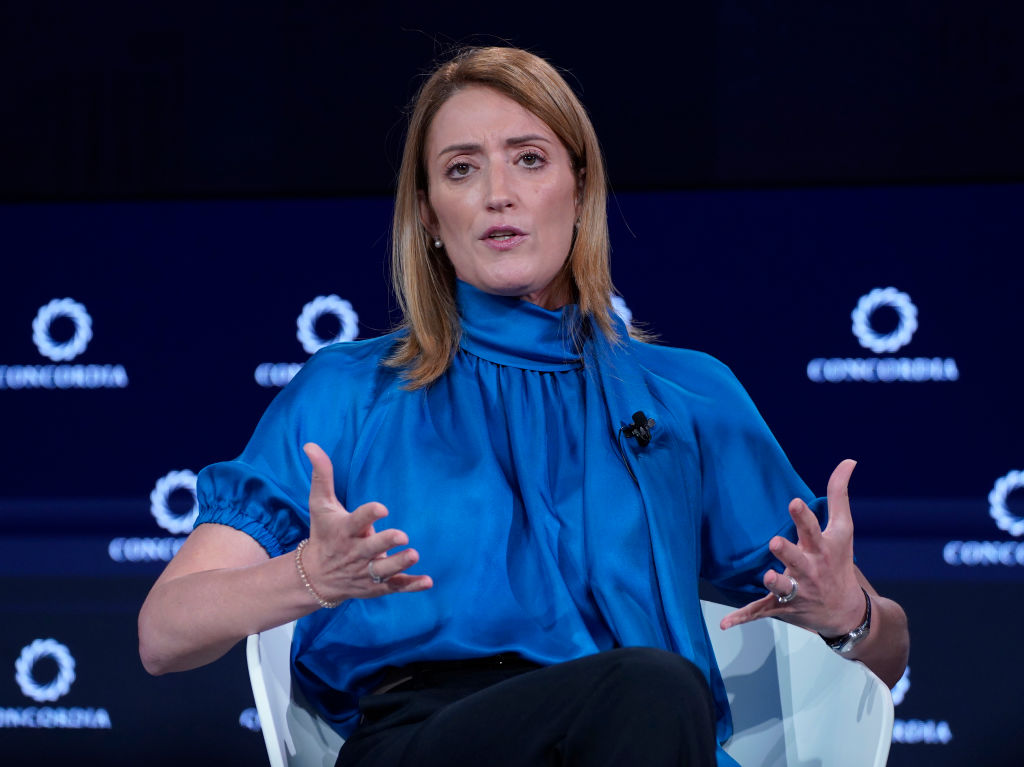Political negotiators have hailed a “breakthrough” compromise on the EU’s new migration pact despite looming trouble from both Left and Right.
Representatives from the EU Parliament, Commission, and the Council of Ministers have been negotiating for nearly two days and nights without breaks, in what have been described as “marathon” trilogues.
Yet while the exhausted MEPs and Commission officials seemed triumphant, rumblings from both the political wings suggest trouble may lie ahead.
Speaking at an early morning press conference on December 20, EP President Roberta Metsola hailed the compromise as “a huge success for the constructive pro-European centre”.
“For the last couple of days, I kept saying ‘good evening’ and ‘good morning’ in continuation, non stop. Because we have not slept a wink… night after night negotiating around the clock,” said MEP Juan Fernando López Aguilar from the centre-left S&D Group.
The Left Group of the EP has sent out press releases denouncing the compromise. With a title claiming that the deal was “a day of mourning for human rights in Europe”, the political Group said that “[t]he New Pact is a bow to right-wing extremists and fascists”.
Cornelia Ernst. a German MEP from Die Linke, called the EU’s Migration Pact “a right-wing populist dream-come-true.”
The Left Group has also been echoed by the Greens, who said it “undermined” human rights. Belgian Green MEP Phillippe Lamberts said the pact would “entrench outdated ideas on how to deal with migration”.
They were joined in denunciation by host of NGOs including the Red Cross EU office, and Amnesty International.
Observers and Brussels media outlets were not long in saying the migration pact would enable Member States to create “prison-like” reception centres.
Konstantinos Arvanitis, a Greek MEP for Syriza, said the deal’s provisions for keeping asylum applicants and irregular migrants in processing centres would end up creating a “European Guantanamo with legal European sponsorship.”
However, if the migration pact was a boon to the hard-right and the populists, there seemed were very few voices from their camp welcoming the compromise.
As of writing, virtually none of the major figures of the national-conservative European Conservative and Reformist Group (ECR) nor of the national-populist Identity and Democracy Group (ID) have commented on, much less praised, the migration pact.
While the Left said the pact “was tailored to the demands of… Orban”, it appears that Budapest is not pleased with the outcome either.
“We most definitely reject the migration pact,” said Hungarian Foreign Minister Péter Szijjártó, “no one can force us to let anyone [into Hungary]”.
Despite the pact enabling tougher border controls, many on the European Right are denouncing the “Solidarity Mechanism”. This part of the pact gives Member States the choice of either accepting relocated migrants, or of paying frontline countries a sum of €20,000 per migrant rejected.
This has been seen as “mandatory relocation by the backdoor”.
Vlaams Belang MEP Tom Vandendriessche took to twitter to claim that far from managing asylum, that the pact was “deliberately encouraging migration.”
EU-migratiepact: het 'managen' van asiel. Het doelbewust stimuleren van migratie
1⃣ Geen bovengrens aantal asielzoekers
2⃣ Geen hefbomen voor terugkeer
3⃣ Miljoenen per jaar via legale migratie importeren— Tom Vandendriessche (@TomVandendriese) December 20, 2023
While the pact has finished its inter-institutional negotiation stage, it must now return to the EP for a final vote of approval.
The EP was subject to a three-way split when the migration pact was last debated in summer, as both the Left and Right lambasted the Centrists for being too extreme and too soft on migration respectively.
Metsola and the other MEPs seemed to anticipate this problem as they took questions from the press.
“The extremes of the political spectrum will vote against anything”, Metsola said, adding that it was easier to criticise and oppose legislation than negotiate and create it.
With the migration pact to be brought before the EP for its January plenary session, there are likely to be more arguments before it gets over the line.





